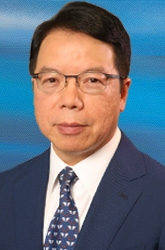Feb112016
Posted at 10:00 AM
Guest blog post by Steven Leung, Senior Vice President and President, Emerging Markets, Xylem
With a rapidly urbanizing population and burgeoning water needs, India’s cities are home to some of the most complicated water challenges on Earth. One-third of India’s 1.2 billion people currently live in the country’s main cities and over the next 40 years, India's population is expected to continue to grow by nearly half a billion. In the next two decades alone, 225 million more people will be living in Indian cities. The water required to serve this population today is expected to grow by approximately 200%.
That is why India is so important. At this critical climate moment, there is so much that can be done at the local and national level to take on issues of water scarcity, infrastructure, treatment, and safety. What’s exciting is that, when we address one issue, the other areas will benefit. For example, by upgrading infrastructure and treatment, we can reduce communicable diseases, 21% of which stem from unsafe water. In another example, research shows that existing high efficiency wastewater management systems can significantly cut harmful emissions without adding costs. What’s more, by implementing these sustainable solutions, we can work toward India’s larger goal of becoming a major contributor to achieving a global green future.
It is because of the scale and complexity of these challenges that Xylem is joining the U.S. Department of Commerce’s Smart Cities Infrastructure Business Development Mission to India. We plan to build on our existing efforts to provide energy-efficient solutions that manage water resources and help build India’s low-carbon economy. With Smart Cities, we aim find opportunities where our products and applications can help to modernize infrastructure with innovative technologies, such as big data analytics. Further, we are committed to forging strong partnerships with the government, across business sectors, with research institutions and NGOs to develop a deeper understanding of the unique challenges that India is facing, and to work together to identify the best solutions for India.
Solving water challenges in India’s cities can have an impact on the world. In forging new partnerships and bolstering existing relationships on this trade mission, we can begin to build success stories that demonstrate the power of global collaboration. If we can apply learnings from the U.S. and around the world to India’s water challenges and needs, we will be able to tilt the global scale from a focus on water risks and crises to water opportunities.
*Steven Leung is Senior Vice President and President, Emerging Markets, at Xylem, a global water technology company. He is responsible for leading Xylem’s commercial operations across markets such as China, India, the Middle East, Africa and Latin America. He is joining the U.S. Department of Commerce’s Smart Cities Infrastructure Business Development Mission to India, along with H. Bala, president of Xylem India.



